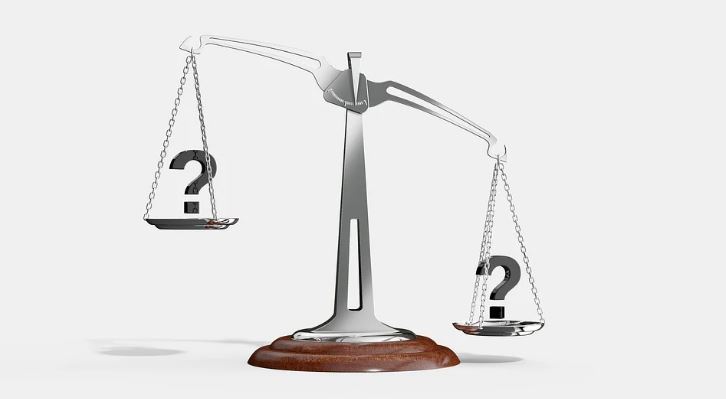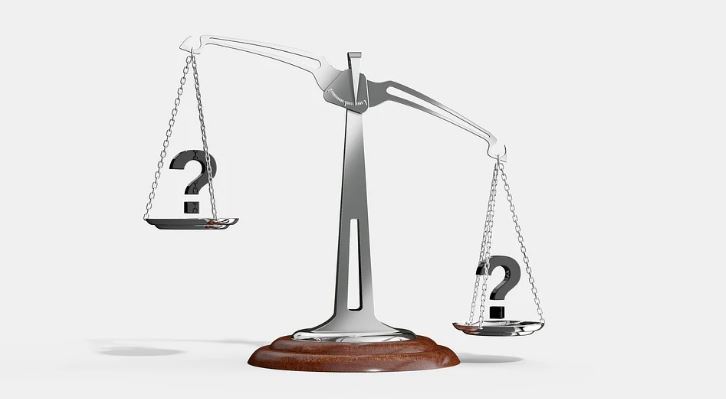Learn about the list of top 100 most common Adverbs in German
What are Adverbs? Are there Adverbs in German?
What is an adverb? Why are adverbs sooooo important? Simply put, Adverbs are the words which provide an additional description to verbs. Adverbs tend to follow the verb and give it more depth and meaning. Adverbs add more definition and stress to a sentence. In this chapter, you will be learning about the list of top 100 most common Adverbs in German with Example sentences and with English translation.
Some examples of Adverbs are:
- YESTERDAY, I ate a sandwich
- You are ALWAYS
- OF COURSE, this task can be done.
- We definitely need MORE
- We ALREADY have a team in place.
Note that in the above examples, the adverb merely provides stress to the sentence but does not change the meaning of sentence itself. As you can clearly see, the vocabulary for German Adverbs is something that you cannot miss out on.
German Vocabulary: How do you say Adverb in German?
- The German translation for “Adverb” is “das Adverb”
- The German translation for “Adverbs” is “die Adverbien”
German Vocabulary: What is the most common list of top 100 Adverbs in German with English translation and example sentences?
Adverbs are very important and unavoidable after you have reached A2 (or sometimes even A1) in German. Similar to how English works, Adverbs in German are very crucial from a grammar perspective.

In the above image, the car was something I saw YESTERDAY. It was SATURADAY! HOW FAR was it from my home? It is LEFT from the station and HOMEWARDS from the supermarket… so so so many adverbs can be used to just describe in relation to this car….
So let us spend some time learning about German adverbs and memorizing the German Word list for Adverbs. Below is the most common list of German Adverbs or top 100 Adverbs in German with English translation and with example sentences so that your German vocabulary learning becomes much easier.
| German | English | English Sentence | German Sentence |
| vorgestern | the day before yesterday | I met him day before yesterday. | Ich habe ihn vorgestern kennengelernt. |
| gestern | yesterday | We drank soup yesterday. | Wir haben gestern Suppe getrunken. |
| heute | today | Today, my brother goes to the supermarket. | Heute geht mein Bruder in den Supermarkt. |
| morgen | tomorrow | Can we meet tomorrow? | Können wir uns morgen treffen? |
| übermorgen | the day after tomorrow | The boy has an examination the day after tomorrow. | Der Junge hat übermorgen eine Untersuchung. |
| damals | then | he was still a boy at the time | er war damals noch ein Knabe |
| früher | earlier | Can you come earlier? | Kannst du früher kommen? |
| jetzt | now | I want a sandwich now! | Ich will jetzt ein Sandwich! |
| sofort | immediately | Come here immediately. | Komm sofort her. |
| bald | soon | I will come soon. | Ich werde bald kommen. |
| später | later | See you later. | Bis später. |
| dann | after/then | and what happened next? | und was geschah dann? |
| immer | always | You are always late. | Du bist immer zu spät. |
| fast immer | almost always | You are almost always late. | Du bist fast immer zu spät. |
| meistens | most of the time | I am generally in bed by that time | Um diese Zeit bin ich meistens schon im Bett |
| häufig | frequently | He went to meet his mother frequently. | Er besuchte seine Mutter häufig. |
| oft | often | She went to meether mother often. | Sie ging oft zu ihrer Mutter. |
| ab und zu | once in a while | Once in a while, I went to the gym. | Ab und zu bin ich ins Fitnessstudio gegangen. |
| manchmal | sometimes | Sometimes, I took my dog to the beach. | Manchmal nahm ich meinen Hund mit an den Strand. |
| selten | rarely | He rarely took a bath. | Er nahm selten ein Bad. |
| fast nie | almost never | He almost never washed his shoes. | Er wusch seine Schuhe fast nie. |
| nie | never | Will she never come? | Wird sie nie kommen? |
| morgens | in the morning | In the morning, I eat breakfast. | Morgens esse ich Frühstück. |
| nachmittags | in the afternoon | the museum is only open in the afternoon | das Museum ist nur nachmittags geöffnet |
| abends | in the evening | In the evening, the baby eats a snack. | Abends isst das Baby einen Snack. |
| nachts | during the night | The flowers close up at night | Die Blüten schließen sich nachts |
| montags | on Mondays | On Mondays, I visit my uncle. | Montags besuche ich meinen Onkel. |
| dienstags | on Tuesdays | On Tuesdays, we go to school. | Dienstags gehen wir zur Schule. |
| mittwochs | on Wednesdays | On Wednesdays, she has meetings. | Mittwochs hat sie Treffen. |
| donnerstags | on Thursdays | On Thursdays, she drives her car. | Donnerstags fährt sie ihr Auto. |
| freitags | on Fridays | On Fridays, we go to parties. | Freitags gehen wir auf Partys. |
| samstags | on Saturdays | On Saturdays, we wash our clothes. | Samstags waschen wir unsere Kleider. |
| sonntags | on Sundays | On Sundays, they go to Church. | Sonntags gehen sie in die Kirche. |
| täglich | daily | I need to take bath daily. | Ich muss täglich baden. |
| wöchentlich | weekly | Weekly, he donates money. | Wöchentlich spendet er Geld. |
| monatlich | monthly | We earn EUR 1000 monthly. | Wir verdienen monatlich 1000 Euro. |
| jährlich | yearly/annually | to have an annual turnover of 24,000 euros | jährlich 24.000 Euro umsetzen |
| abends | in the evenings | In the evening, we play tennis. | Abends spielen wir Tennis. |
| halbtags | half a day | Ask Tom if he’s willing to work part-time. | Frag Tom, ob er bereit wäre, halbtags zu arbeiten. |
| feiertags | Holidays | On holidays, my children travel. | In den Ferien reisen meine Kinder. |
| vorn / vorne | in front | Please do not eat in front of the church. | Bitte essen Sie nicht vor der Kirche. |
| hinten | behind | You can smoke behind the building. | Sie können hinter dem Gebäude rauchen. |
| links | on the left | On the left, you can see the old church. | Links sieht man die alte Kirche. |
| rechts | on the right | On the right, you can see the new temple. | Rechts sieht man den neuen Tempel. |
| oben | up | we’ve reached up the top now | nun sind wir oben |
| unten | down | It hurts down here | Hier unten tut es mir weh |
| innen | inside | Inside, we have a cat | Drinnen haben wir eine Katze |
| außen | outside | They went outside. | Sie gingen nach draußen. |
| hier | here | Here is the prize | hier ist der preis |
| da | there | There is the prize | da ist der preis |
| überall | everywhere | He goes everywhere by bicycle. | Mit dem Fahrrad fährt er überall hin. |
| nirgends | nowhere | The book was nowhere to be found | das Buch war nirgends zu finden |
| aufwärts | upwards | the road goes upwards. | die Straße führt aufwärts |
| abwärts | downwards | his health is failing | mit seiner Gesundheit geht es abwärts |
| vorwärts | forwards | The car goes forwards. | Das Auto fährt vorwärts. |
| rückwärts | backwards | The boat goes backwards. | Das Boot fährt rückwärts. |
| heimwärts | homeward | He turned his steps homewards. | Er lenkte seine Schritte heimwär |
| bergauf | uphill | My house is uphill. | Mein Haus steht bergauf. |
| bergab | downhill | My house is downhill. | Mein Haus ist bergab. |
| deshalb | therefore | Therefore, I will go to school | Deshalb gehe ich zur Schule |
| darum | therefore | Therefore he knows about it | er weiß darum |
| deswegen | therefore | Therefore don’t make such a fuss about it! | mach doch deswegen nicht so ein Trara! |
| folglich | thus/consequently | The wording of paragraph 23 is therefore incorrect. | Die Aussage in Ziffer 23 ist folglich nicht korrekt. |
| daher | therefore | I have just come from there too | ich komme auch gerade daher |
| erstens | firstly | Firstly, I do not smoke. | Erstens rauche ich nicht. |
| zweitens | secondly | Secondly, I do not drink. | Zweitens trinke ich nicht. |
| drittens | thirdly | Thirdly, I do not lie. | Drittens lüge ich nicht. |
| auch | also | I am also vegan. | Ich bin auch Veganer. |
| ebenfalls | as well | Huck began to dig and scratch now. | Huck begann ebenfalls zu graben und zu wühlen. |
| ansonsten | otherwise | apart from that there is nothing to report | ansonsten gibt es hier nichts Neues |
| außerdem | in addition | it was cold and additionally it was raining. | es war kalt, und außerdem regnete es noch |
| nur | only | Only John Wick can save him. | Nur John Wick kann ihn retten. |
| wenigstens | at least | at least this is what they were saying | so hieß es wenigstens |
| Hingegen | on the other hand | Amnesty for Saddam Hussein is simply intolerable. | Eine Amnestie für Saddam Hussein ist hingegen untragbar. |
| sehr | very | You are very loud. | Du bist sehr laut. |
| kaum | hardly | There was hardly any soup left. | Es gab kaum noch Suppe. |
| Wann | When | When are you buying a bed? | Wann kaufen Sie ein Bett? |
| Warum | Why | Why are you buying a bed? | Warum kaufst du ein Bett? |
| Wieso | Why | Why? | Wieso den? |
| Wie alt | how old | How old is your mother? | Wie alt ist Ihre Mutter? |
| Wie viel | how much/many | How many cats do you have? | Wie viele Katzen hast du? |
| Wie lange | how long | How long did she wait? | Wie lange hat sie gewartet? |
| Wie oft | how often | How often will you come here? | Wie oft wirst du hierher kommen? |
| Wie teuer | how expensive | How expensive is the suit? | Wie teuer ist der Anzug? |
| Wie weit | how far | How far is your home? | Wie weit ist Ihr Zuhause? |
| Woran | whereof | what exactly do you have in mind? | woran denkst du dabei? |
| Worauf | where upon | What are you waiting for? | Worauf wartest du? |
| Woraus | what from | what is that made of? | woraus ist das gemacht? |
| Wobei | in which/ whereat | We had physical education yesterday where every girl wore a black shirt | Gestern hatten wir Sport, wobei alle Mädchen schwarze Shirts trugen |
| Wogegen | against what | what are you struggling against? | wogegen wehrst du dich? |
| Worin | wherein | where (od what) is the difference? | worin besteht der Unterschied? |
| Womit | whereby | how have I deserved this? | womit habe ich das verdient? |
| Worüber | what about | what are you thinking about? | worüber denkst du nach? |
| Worum | what about | what is it about? | worum handelt es sich? |
| Wozu | what for | what is that (supposed to be) for? | wozu dient das? |
| Wohin | where to | where are you going to? | wohin gehst du? |
| Woher | from where | where are you coming from? | woher kommst du? |
| bald | soon | come again soon! | komm bald wieder! |
| eher | sooner | he was earlier than usual today | heute kam er eher als sonst |
| am ehesten | soonest | I was there the earliest. | ich war am ehesten da |
| gern | gladly | I can gladly believe that | das will ich gern glauben |
| lieber | preferably | he would rather die than betray his friends | er würde lieber sterben als seine Freunde verraten |
| am liebsten | most preferably | I like that best (of all) | das habe ich am liebsten |
| oft | often | he often paid us a visit | er war oft bei uns zu Besuch |
| öfter | more often | we’ll see more of you | wir werden dich noch öfter sehen |
| am häufigsten | most often | her visits have grown more frequent | ihre Besuche sind häufiger geworden |
| wohl | well | She looks well. | sie sieht sehr wohl aus |
| wohler | better | I have never felt better (than I do at the moment), I have never felt so good | ich habe mich nie wohler gefühlt |
| am wohlsten | best | She is the best singer. | Sie ist die beste Sängerin. |
What are the other different German wordlists
Adverbs in German: The German adverbs related to time
Simply put, these kind of Adverbs related to time in German, target and accentuate the question of “when”. Basically, this group of adverbs include those vocabulary or words which describe THE WHEN and THE HOW FREQUENLY for any action. Below is the vocabulary list of German adverbs of time.

Below is the most common list of Adverbs in German related to time. There are example sentences given with sentences in Deutsche and English translation so that you will be able to retain the German vocabulary.
| English | German | English Sentence | German Sentence |
| gerade | right now | I was just in Paris a few days ago. | Gerade vor ein paar Tagen erst war ich in Paris. |
| gleich | in a minute | you’ll get a smack in a minute! | gleich knallt’s! |
| gestern | yesterday | Yesterday, I was bored. | Gestern war mir langweilig. |
| ehemalig | former | He is the former president. | Er ist der ehemalige Präsident. |
| morgen | tomorrow | Tomorrow, you will eat the cake | Morgen isst du den Kuchen |
| eben | just now | I have learnt of it just now | ich habe es eben erst erfahren |
| kürzlich | recently | Recently, there was a robbery. | Kürzlich gab es einen Raubüberfall. |
| damals | back then | Back then, people were happy. | Damals waren die Leute glücklich. |
| schließlich | finally | he finally agreed to it | er erklärte sich schließlich damit einverstanden |
| neulich | recently | I met him recently | ich bin ihm neulich begegnet |
| sofort | Immediately, at once | Immediately, at once | Sofort, sofort |
| zuletzt | in the end | in the end he lost patience | zuletzt verlor er die Geduld |
| zukünftig | In the future | Both reduce future potential growth. | Beides verringert das Potenzial für zukünftiges Wachstum. |
| seit | since | Since 1950, I have lived in Germany. | Seit 1950 lebe ich in Deutschland. |
| vorgestern | the day before yesterday | I met him day before yesterday. | Ich habe ihn vorgestern kennengelernt. |
| gestern | yesterday | We drank soup yesterday. | Wir haben gestern Suppe getrunken. |
| heute | today | Today, my brother goes to the supermarket. | Heute geht mein Bruder in den Supermarkt. |
| morgen | tomorrow | Can we meet tomorrow? | Können wir uns morgen treffen? |
| übermorgen | the day after tomorrow | The boy has an examination the day after tomorrow. | Der Junge hat übermorgen eine Untersuchung. |
Adverbs in German related to Frequency
These set of adverbs are split off from time and these Adverbs in German, target and accentuate the question of “HOW OFTEN DOES THAT HAPPEN?” Basically, this group of adverbs in German include those vocabulary or words which accentuate the answer for “HOW FREQUENLY”

Below is the most common list of Adverbs in German related to Frequency? There are example sentences given with sentences in Deutsche and English translation so that you will be able to quickly and efficiently memorize.
| English | German | English Sentence | German Sentence |
| immer | always | You are always late. | Du bist immer zu spät. |
| manchmal | sometimes | Sometimes, I took my dog to the beach. | Manchmal nahm ich meinen Hund mit an den Strand. |
| selten | rarely | He rarely took a bath. | Er nahm selten ein Bad. |
| fast nie | almost never | He almost never washed his shoes. | Er wusch seine Schuhe fast nie. |
| gelegentlich | occasionally | he gives his nephew some money now and then | er lässt seinem Neffen gelegentlich etwas (Geld) zukommen |
| selten | rarely | He rarely took a bath. | Er nahm selten ein Bad. |
| nie | never | Will she never come? | Wird sie nie kommen? |
| meistens | most of the time | I am generally in bed by that time | Um diese Zeit bin ich meistens schon im Bett |
| oft | often | She went to meether mother often. | Sie ging oft zu ihrer Mutter. |
| morgens | in the morning | In the morning, I eat breakfast. | Morgens esse ich Frühstück. |
| nachmittags | in the afternoon | the museum is only open in the afternoon | das Museum ist nur nachmittags geöffnet |
| abends | in the evening | In the evening, the baby eats a snack. | Abends isst das Baby einen Snack. |
| nachts | during the night | The flowers close up at night | Die Blüten schließen sich nachts |
| montags | on Mondays | On Mondays, I visit my uncle. | Montags besuche ich meinen Onkel. |
| dienstags | on Tuesdays | On Tuesdays, we go to school. | Dienstags gehen wir zur Schule. |
| mittwochs | on Wednesdays | On Wednesdays, she has meetings. | Mittwochs hat sie Treffen. |
| donnerstags | on Thursdays | On Thursdays, she drives her car. | Donnerstags fährt sie ihr Auto. |
| freitags | on Fridays | On Fridays, we go to parties. | Freitags gehen wir auf Partys. |
| samstags | on Saturdays | On Saturdays, we wash our clothes. | Samstags waschen wir unsere Kleider. |
| sonntags | on Sundays | On Sundays, they go to Church. | Sonntags gehen sie in die Kirche. |
| täglich | daily | I need to take bath daily. | Ich muss täglich baden. |
| wöchentlich | weekly | Weekly, he donates money. | Wöchentlich spendet er Geld. |
| monatlich | monthly | We earn EUR 1000 monthly. | Wir verdienen monatlich 1000 Euro. |
| jährlich | yearly/annually | to have an annual turnover of 24,000 euros | jährlich 24.000 Euro umsetzen |
Adverbs in German related to Place
These set of adverbs are a set of its own and they tend to target and accentuate the “WHERE DID IT HAPPEN IN RELATION TO ME?” Example, Is it up or down or right or left? It is here or there or inside or outside.
These adverbs also include the adverbs related to movement such as “upwards / downwards..” etc
Below is the most common list of Adverbs in German related to Place? There are example sentences given with sentences in Deutsche and English translation.
| English | German | English Sentence | German Sentence |
| vorn / vorne | in front | Please do not eat in front of the church. | Bitte essen Sie nicht vor der Kirche. |
| hinten | behind | You can smoke behind the building. | Sie können hinter dem Gebäude rauchen. |
| links | on the left | On the left, you can see the old church. | Links sieht man die alte Kirche. |
| rechts | on the right | On the right, you can see the new temple. | Rechts sieht man den neuen Tempel. |
| oben | up | we’ve reached up the top now | nun sind wir oben |
| unten | down | It hurts down here | Hier unten tut es mir weh |
| innen | inside | Inside, we have a cat | Drinnen haben wir eine Katze |
| außen | outside | They went outside. | Sie gingen nach draußen. |
| hier | here | Here is the prize | hier ist der preis |
| da | there | There is the prize | da ist der preis |
| überall | everywhere | He goes everywhere by bicycle. | Mit dem Fahrrad fährt er überall hin. |
| nirgends | nowhere | The book was nowhere to be found | das Buch war nirgends zu finden |
| aufwärts | upwards | the road goes upwards. | die Straße führt aufwärts |
| abwärts | downwards | his health is failing | mit seiner Gesundheit geht es abwärts |
| vorwärts | forwards | The car goes forwards. | Das Auto fährt vorwärts. |
| rückwärts | backwards | The boat goes backwards. | Das Boot fährt rückwärts. |
| rückwärts | homeward | He turned his steps homewards. | Er lenkte seine Schritte heimwär |
| bergauf | uphill | My house is uphill. | Mein Haus steht bergauf. |
| bergab | downhill | My house is downhill. | Mein Haus ist bergab. |
Adverbs of Quantity
These set of adverbs target and accentuate the “HOW MUCH QUANTITY?”

Below is the most common list of Adverbs in German related to Quantity. There are example sentences given with sentences in Deutsche and English translation.
| English | German | English Sentence | German Sentence |
| wenig | Little | This is too little. | das ist zu wenig |
| gar nicht | not at all | It’s not at all bad | Es ist gar nicht schlecht |
| viel | much | It’s a bit too much | Es ist ein bisschen zu viel |
| übermäßig | excessively | You are excessively angry. | Du bist übermäßig wütend. |
| extrem | extremely | The prices are extremely high. | Die Preise sind extrem hoch. |
Adverbs of Causality
These set of adverbs target and accentuate the “CONCLUSION” such as “THEREFORE I am right”
Below is the most common list of Adverbs in German related to Conclusion. There are example sentences given with sentences in Deutsche and English translation.
| English | German | English Sentence | German Sentence |
| deshalb | for this reason | Therefore, I will go to school | Deshalb gehe ich zur Schule |
| darum | therefore | Therefore he knows about it | er weiß darum |
| deswegen | because of this | Therefore don’t make such a fuss about it! | mach doch deswegen nicht so ein Trara! |
| folglich | consequently | The wording of paragraph 23 is therefore incorrect. | Die Aussage in Ziffer 23 ist folglich nicht korrekt. |
| daher | therefore | I have just come from there too | ich komme auch gerade daher |
Adverbs of Interrogation
These very very important set of adverbs ask the “QUESTION” such as “WHY / HOW… etc”

Below is the most common list of Adverbs in German related to Interrogation? There are example sentences given with sentences in Deutsche and English translation.
| English | German | English Sentence | German Sentence |
| Wann | When | When are you buying a bed? | Wann kaufen Sie ein Bett? |
| Warum | Why | Why are you buying a bed? | Warum kaufst du ein Bett? |
| Wieso | Why | Why? | Wieso den? |
| Wie alt | how old | How old is your mother? | Wie alt ist Ihre Mutter? |
| Wie viel | how much/many | How many cats do you have? | Wie viele Katzen hast du? |
| Wie lange | how long | How long did she wait? | Wie lange hat sie gewartet? |
| Wie oft | how often | How often will you come here? | Wie oft wirst du hierher kommen? |
| Wie teuer | how expensive | How expensive is the suit? | Wie teuer ist der Anzug? |
| Wie weit | how far | How far is your home? | Wie weit ist Ihr Zuhause? |
| Woran | whereof | what exactly do you have in mind? | woran denkst du dabei? |
| Worauf | where upon | What are you waiting for? | Worauf wartest du? |
| Woraus | what from | what is that made of? | woraus ist das gemacht? |
| Wobei | in which/ whereat | We had physical education yesterday where every girl wore a black shirt | Gestern hatten wir Sport, wobei alle Mädchen schwarze Shirts trugen |
| Wogegen | against what | what are you struggling against? | wogegen wehrst du dich? |
| Worin | wherein | where (od what) is the difference? | worin besteht der Unterschied? |
| Womit | whereby | how have I deserved this? | womit habe ich das verdient? |
| Worüber | what about | what are you thinking about? | worüber denkst du nach? |
| Worum | what about | what is it about? | worum handelt es sich? |
| Wozu | what for | what is that (supposed to be) for? | wozu dient das? |
| Wohin | where to | where are you going to? | wohin gehst du? |
| Woher | from where | where are you coming from? | woher kommst du? |


